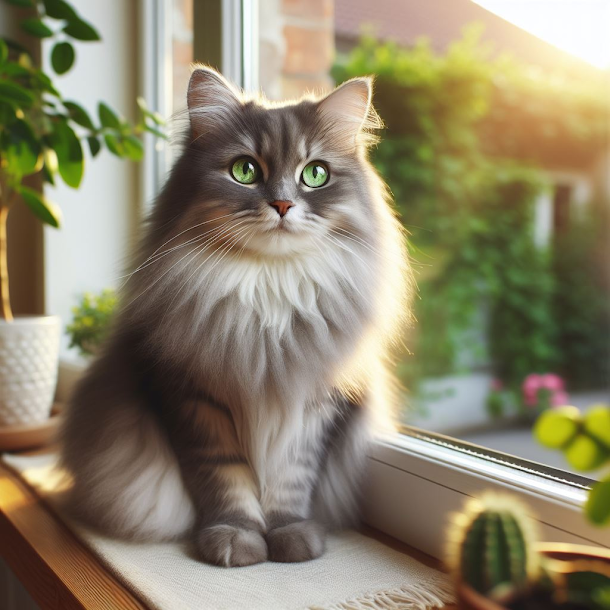But the studies I've read were based upon a very large number of cats and the information came from veterinary clinics and animal hospitals where the cats had died. These clinics had treated the cats beforehand and therefore they had a complete record.
 |
| Females live longer on average. Click on the image to see the original and to download it if you want to. |
One consistent item of information running through the mass of data on domestic cat longevity is the fact that female cats live longer than male cats and that would apply to purebred cats and crossbred cats. However, it would apply less to purebred cats because these cats are normally kept indoors full-time whereas crossbreed (random-bred or moggy) cats are normally allowed outside in many countries where they are liable to have accidents and be injured or killed. This distorts data on life expectancy of crossbreed cats.
And it is one reason why, I suspect that male cats have shorter life expectancy than females. Another would be health issues perhaps predominantly concerning urinary tract diseases. Males are more adventurous than females and they patrol large home ranges. Young males are particularly vulnerable to accidents (RTAs primarily). This advice applies to females with a well-maintained, ideal weight and who is spayed (sterilized).
In a particularly good study on this topic, the researchers found that female cats tended to live to 12.5 years on average compared to males who made it to 11.2 years of age; more than the year extra for the females.
See my report on this study concerned males and females: Female domestic cats live longer than male domestic cats (big 2019 UK study).
You will notice that the average age of a male cat is 11.2 years. I've always thought that domestic cats in general live to about 14 or 15 years of age. The studies have forced me to adjust my expectation on cat age downwards.
Crossbred cats tended to live longer than purebreds with lifespans of 11.9 years and 10.4 years respectively. Once again the lifespans are shorter than I expected. I expected better but perhaps my expectations concern a well-looked after domestic cat in a nice home in which the caregiver is concerned about the health and welfare of their companion animal.
There are millions of domestic cats in less than good homes in both the UK and USA and other countries where their caregiving is less than optimal and where some end up in rescue centres and have lives which are far from ideal. All of these factors bear down on longevity sometime substantially.
But if longevity is an important factor to you and it should be as it reflects health then consider the words in the title to this article. 👍💕😊
And if you would like to read some more about domestic cat longevity there are a couple of links below which might interest you. One is about purebred cats and the Birman and Burmese being the longest-lived purebred cats. In fact, these two cat breeds live longer on average than non-purebred cats or crossbred cats according to this study which I have cited below together with a link so you can read a bit more about the topic if you wish.
- Sphynx cat breed has the shortest life expectancy of 6.68 years - the cause? HCM (heart disease)
- Burmese and Birman cats have the longest life expectancy of purebred cats (2024) - the reason? Less serious inherited genetic diseases.
P.S. In a study "Mortality of Life-Insured Swedish Cats during 1999–2006: Age, Breed, Sex, and Diagnosis" there was no difference in mortality rates between male and female. The study mainly concerned purebred cats. "Sex-specific rates did not differ significantly".
------------------
P.S. please forgive the occasional typo. These articles are written at breakneck speed using Dragon Dictate. I have to prepare them in around 20 mins.

No comments:
Post a Comment
Your comments are always welcome.
Note: only a member of this blog may post a comment.